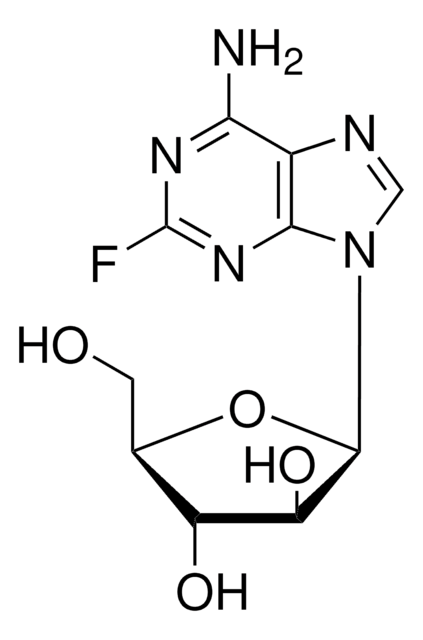94072246
RPMI 7932 cell line
94072246, human lung effusion, Epithelial-like morphology
Sign Into View Organizational & Contract Pricing
All Photos(1)
About This Item
UNSPSC Code:
41106514
Recommended Products
product name
RPMI 7932 cell line,
biological source
human lung (effusion)
form
liquid
growth mode
Adherent
karyotype
Not specified
morphology
Epithelial-like
products
Plasminogen activator
receptors
Not specified
technique(s)
cell culture | mammalian: suitable
relevant disease(s)
cancer
shipped in
dry ice
storage temp.
−196°C
Cell Line Origin
Human pleural effusion from a patient with malignant melanoma
Cell Line Description
Derived from the pleural effusion of a 36 year old female with malignant melanoma. Cell line produces plasminogen activator. This cell line was found to be indistinguishable from cell lines COLO 699N & COLO 738 by STR PCR DNA profiling. At ECACC the STR PCR profile of all stocks of this cell line match the profile of the original source material received at ECACC. However, it is not clear if the cell lines COLO 699N, RPMI 7932 & COLO 738 were originally derived from the same individual as the profiles suggest. The cell lines COLO 699N, RPMI 7932 & COLO 738 were received from the same depositor. If we are able to obtain clarification of the relationship between these cell lines this information will be updated.
Application
Tumourigenicity studies
Culture Medium
RPMI 1640 + 2mM Glutamine + 10% Foetal Bovine Serum (FBS).
Subculture Routine
Split sub-confluent cultures (70-80%) 1:2 to 1:4 i.e. seeding at 3-6x10,000 cells/cm2using 0.25% trypsin/EDTA; 5% CO2; 37°C.
Other Notes
Additional freight & handling charges may be applicable for Asia-Pacific shipments. Please check with your local Customer Service representative for more information.
Disclaimer
RESEARCH USE ONLY. This product is regulated in France when intended to be used for scientific purposes, including for import and export activities (Article L 1211-1 paragraph 2 of the Public Health Code). The purchaser (i.e. enduser) is required to obtain an import authorization from the France Ministry of Research referred in the Article L1245-5-1 II. of Public Health Code. By ordering this product, you are confirming that you have obtained the proper import authorization.
Storage Class Code
10 - Combustible liquids
WGK
WGK 3
Flash Point(F)
Not applicable
Flash Point(C)
Not applicable
Certificates of Analysis (COA)
Search for Certificates of Analysis (COA) by entering the products Lot/Batch Number. Lot and Batch Numbers can be found on a product’s label following the words ‘Lot’ or ‘Batch’.
Already Own This Product?
Find documentation for the products that you have recently purchased in the Document Library.
C W Porter et al.
Cancer research, 54(22), 5917-5924 (1994-11-15)
Certain N-alkylated analogues of the natural polyamine spermine, such as N1,N11-diethylnorspermine (DENSPM), rapidly deplete intracellular polyamine pools by down-regulating the biosynthetic enzymes, ornithine decarboxylase and S-adenosylmethionine decarboxylase, and by potently up-regulating the polyamine catabolizing enzyme, spermidine/spermine N1-acetyltransferase. On the basis
J A Eisman et al.
Cancer research, 47(1), 21-25 (1987-01-01)
It has been demonstrated previously that several human cancer cell lines possess specific, high affinity receptors for 1,25-dihydroxyvitamin D3 [1,25-(OH)2D3, calcitriol] and that 1,25-(OH)2D3 and certain of its metabolites inhibit the growth in vitro of several human breast cancer and
B Sharma
Cancer research, 37(12), 4660-4668 (1977-12-01)
Tumor cell fractions isolated from tumor lines SH-3 (breast carcinoma) and RPMI-7932 (malignant melanoma) by differential centrifugations were capable of transforming lymphocytes into cytotoxic effector cells. Lymphocytes cultured alone in human AB plasma did not become cytotoxic to tumor cells.
Generation of cytotoxic lymphocytes against human tumor cells in vitro by various soluble microbial extracts.
B Sharma et al.
Journal of the National Cancer Institute, 63(2), 341-346 (1979-08-01)
B K Bhuyan et al.
Cancer research, 46(4 Pt 1), 1688-1693 (1986-04-01)
Our interest in prostaglandins (PGs) as antitumor agents stemmed from the report of Bregman and Meyskens (Cancer Res., 43: 1642-1645, 1983) that PGA1, PGA2, and PGD2 inhibited colony formation by human melanoma cells obtained from fresh biopsies of melanoma patients.
Our team of scientists has experience in all areas of research including Life Science, Material Science, Chemical Synthesis, Chromatography, Analytical and many others.
Contact Technical Service






